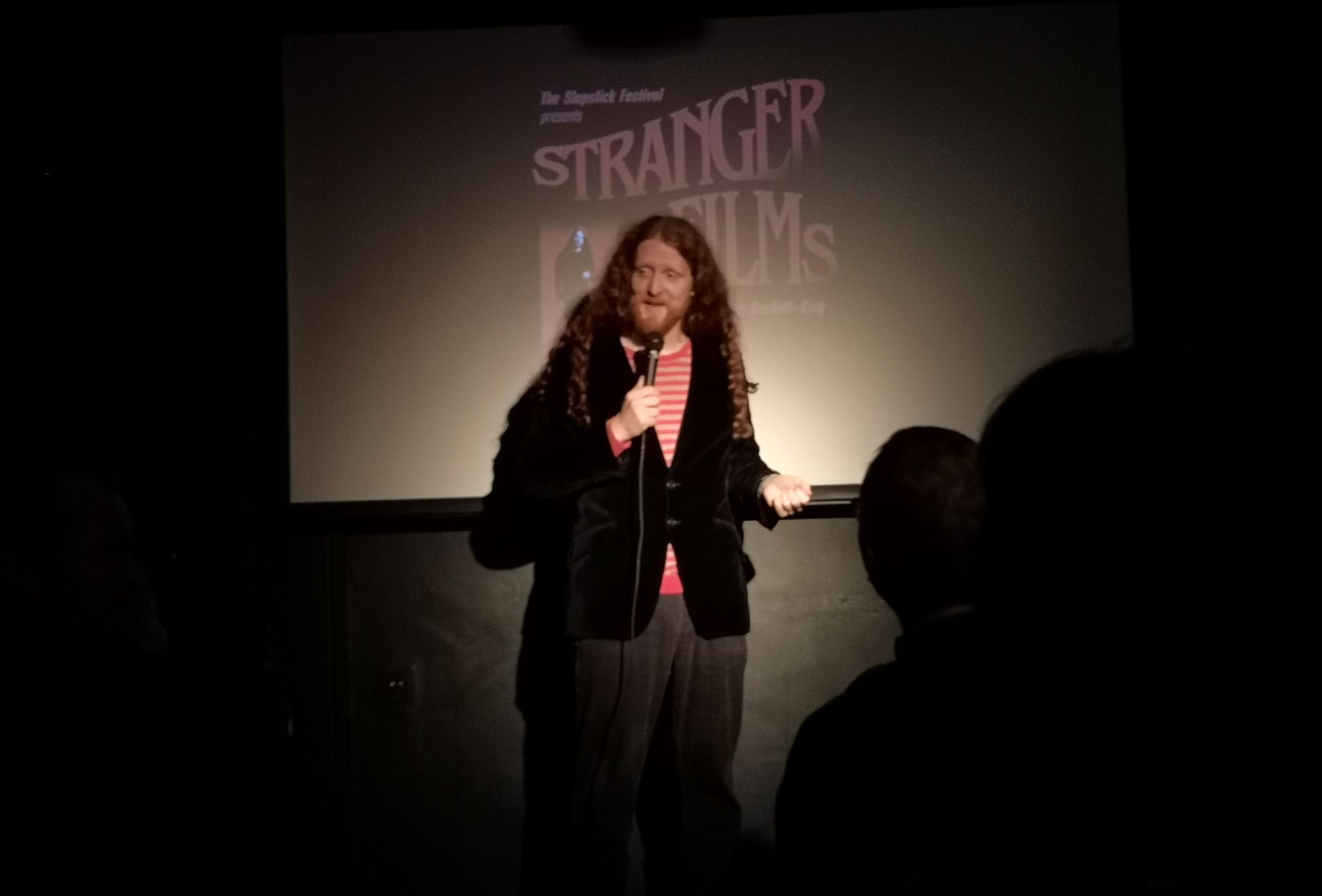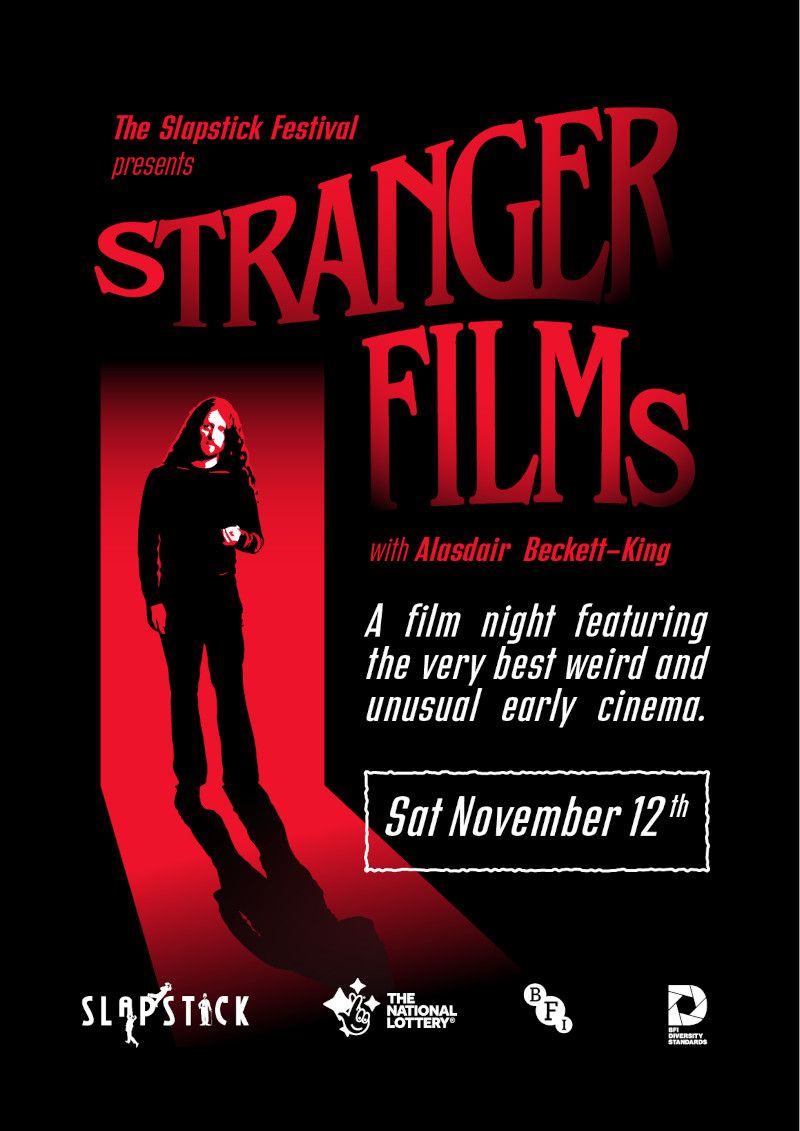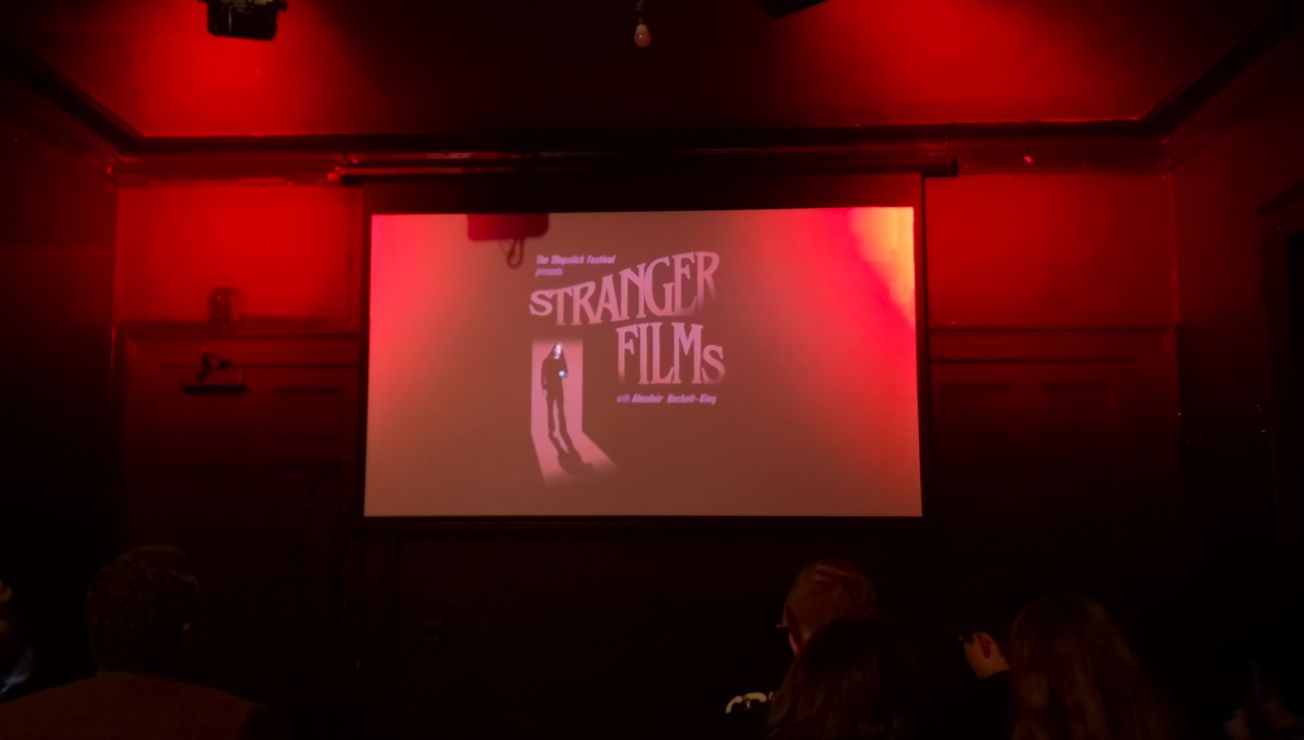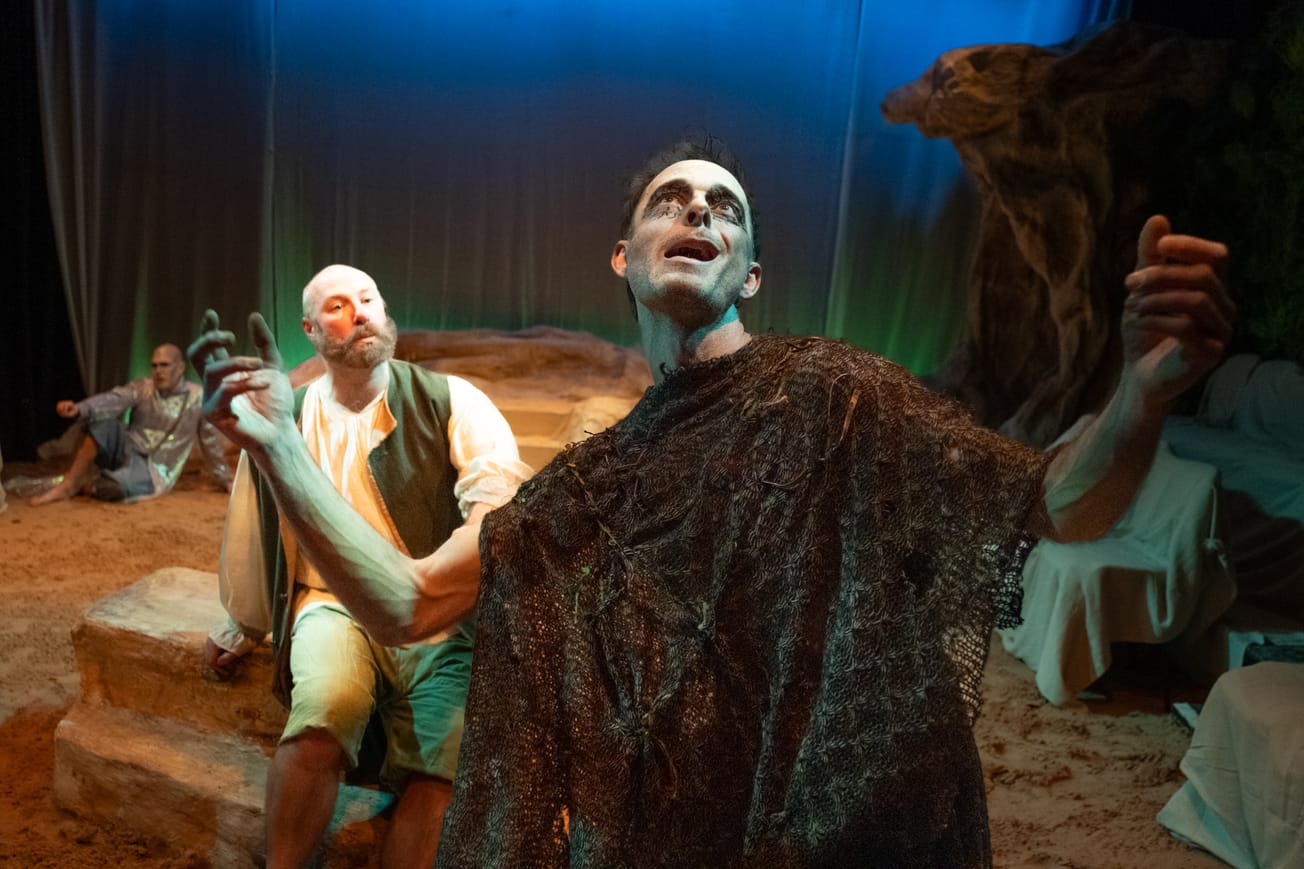By Milan Perera, Arts Critic Columnist
The Bristol Slapstick Festival, in partnership with the British Film Institute (BFI), presents ‘Stranger Films’, a light-hearted homage to the pioneers of early silent comedy which laid the foundation for the medium of cinema.
A deft play on words of the Netflix hit series, ‘Stranger Things’, ‘Stranger Films’ revisited some of the milestones of early slapstick sketches which are all but oblivious to younger audiences, who are constantly bombarded with an avalanche of streaming contents such as ‘Stranger Things’.
The event was held at the newly-refurbished The Room Above theatre at the White Bear public house before a packed attendance. In fact, two back-to-back shows (7.00 p.m. & 9.00 p.m.) for the night were scheduled due to the huge interest in the event.
The host for the evening was the stand-up comedian Alasdair Beckett-King, who was hailed by Rolling Stone magazine as an “unmissable act” and whose appearances at the Edinburgh Fringe Festival and Mock the Week earned critical acclaim.
Beckett-King is an aficionado of early silent comedies and his enthusiasm for the genre knows no bounds; he briefly introduced the evening of early silent comedies with references to Lumière brothers and Georges Méliè.

The first offering for the evening was the delightful 1898 showpiece of Méliè titled ‘Un homme de têtes’, where the protagonist appeared between two tables and removed his own head to put it on a table, where it started talking and looking around. After repeating this action twice more, there were four heads on the table, which started singing to his banjo playing. The surreal sketch shows the visionary genius of Méliè, who condensed an abundance of skittish humour to one small film which he wrote, directed and performed.
Next in store for the evening was the surreally disturbing masterpiece of Le Cochon Danseur (The Dancing Pig) from 1907, where an anthropomorphic pig dressed in fancy clothes danced with a girl, after she humiliated the pig by stripping it naked. It goes without saying that the vigorous tongue movement and eye rolling of the pig pushed the boundaries of puppetry to the limit. The audience were left wondering whether it was one or two people inside that pig costume who could articulate such a range of movements.
The Dancing Pig was followed by a homage to perhaps one of the most iconic stop motion special effects pioneers in the cinematic history, Willis O’Brien, who went onto create a masterpiece in the magnitude of King Kong. The 1925 film, ‘The Lost World’, was based on the book by Sir Arthur Conan Doyle of the same title, where a menacing dinosaur is seen roaming the streets of London wreaking havoc. Even with the most basic tools available at the time one cannot fail to appreciate the conception and execution of the project.

The penultimate piece for the night featured the unparalleled skills of the legendary British comedy duo, Laurel and Hardy. They were considered a conduit between the silent comedy era and the Golden Age of cinema. The critically acclaimed ‘Liberty’ manages to combine fear element and skittish humour, as the pair perched precariously on a skyscraper.
The evening dedicated to silent comedy ended on a high note with the screening of the 1912 showstopper, ‘The Cameraman’s Revenge’ by Ladislas Starevich. The Russian born Starevich made seismic strides in stop-motion animation where he used actual dried insect specimens as articulated stop-motion puppets. The story revolves around the delightfully absurd premise of a love collision involving a stag beetle, grasshopper and dragonfly. The raucous laughter from the audience during the movie was a resounding seal of approval for the movie choice that went down a treat.
‘Stranger Films’ managed to bring a cornucopia of delights of silent comedy to a thoroughly modern audience whose exposure to the genre is severely limited - a timely response to address the issue.
Featured Image: Courtesy of Milan Perera
Did you attend Slapstick's 'Stranger Films'?









